The Blind Spot, a study of ethical dilemmas, senior leaders and grand challenges
How will the ethics of a project professional affect their ability to address the Grand Challenges our planet and society faces? This is the focus of a new APM study, titled ‘The Blind Spot’. The study is led by Dr Efrosyni Konstantinou, Associate Professor in Strategic Management of Projects, Bartlett School of Sustainable Construction, UCL.
Contents |
[edit] What is a Grand Challenge?
Grand Challenges are defined within the research as global problems that cannot be solved by one individual, organisation or nation alone, and are used interchangeably with the United Nations Sustainable Development Goals (UNSDGs). They include, but are not limited to:
- Climate change
- Food and water shortages
- Social injustices (e.g., restricted access to education, voting, fair labour conditions, Human rights and political participation)
- Global health and international aid development investments
- Cyberspace security
- Human space exploration
- Blockchain
[edit] Grand Challenges Collaborations (GCCs)
As such, extensive, international, interdisciplinary, and cross-sector collaborations are key in addressing Grand Challenges. Grand Challenges Collaborations (GCCs) include teams of senior leaders and experts such as law professionals, academics, engineers, doctors, technologists, activists, technocrats, politicians, government officials and management consultants.
[edit] What did the study find?
In answering the question on whether the project profession is ready to address Grand Challenges, the research findings suggest:
- Yes, because 100% (62 interviewees) of GCC trailblazers are fundamentally preoccupied with ethics on a day-to-day basis. GCC trailblazers being senior leaders and experts whose power and influence are formidably channelled in strategically managing GCCs and related interdisciplinary, cross-sectoral, international work.)
- And, no, because ethics is the ‘blind spot’ of GCCs. There is no institutional – professional, educational or other – infrastructure that adequately prepares GCC trailblazers to understand and work with ethics in interdisciplinary, international, cross-sectoral collaborations designed to address Grand Challenges.
The study uses the analogy of the blind spot, in that the personal codes of ethics of GCC trailblazers are concealed. They remain in the blind spot of high-stakes GCCs and remain here until they are challenged and become the force that (re-)define the boundaries of the project - the who, when, why, how, and what will and will not be happen in the project. One survey participant captured the prominence of ethics by saying: “If it’s between the collaboration and the ethics, we will choose the ethics.”
[edit] Key findings
When personal codes of ethics are violated, GCC trailblazers resolve ethical disputes or dilemmas in one’s ethics shelter or ethical ‘comfort zone’ where the GCC trailblazer debates alternative courses of action, decides what they are prepared to do and not do in the GCC, and makes key, strategic GCC decisions for the collaboration– all based on their personal code of ethics. GCC trailblazers almost exclusively rely on their personal codes of ethics to resolve ethical disputes or dilemmas.
There is an urgent need for the project profession (but also for academics, funders, investors, policymakers and others who are involved in GCCs) to acknowledge, to build awareness and act so that (personal codes of) ethics appear visible to
- GCC trailblazers as well as providing a series of recommendations and implications for each. This is important so that GCC trailblazers who address Grand Challenges can be prepared and supported in working with ethics.
- The project profession can play a leading role in legitimising and advocating for a set of approaches to addressing Grand Challenges, and accordingly, develop its contribution and own legitimacy in the global community.
Daniel Nicholls, Research Manager at APM says, “The research uncovers some enlightening aspects on ethics and professionalism which we can all draw on. It also plays an important part in APM’s ongoing commitment to further professionalism across the project profession, following other recent APM studies including Fairness and Unfairness in Projects research, and the introduction our Chartered Project Professional Standard for those working in projects.”
Find out more about APM’s research fund
This article appears on the APM news and blog site as"The Blind Spot - A study on the ethical dilemmas that senior leaders and experts face in collaborations to address Grand Challenges" dated January 25 2023.
--Association for Project Management
[edit] Related articles on Designing Buildings
- APM articles.
- A change to adoptive architecture.
- Adapting your technology to the new working normal.
- Blockchain technology in the construction industry.
- Climate change science.
- Climate feedback.
- Cyber resilience.
- Cyber security and engineering.
- Cyber threats to building automation and control systems.
- Earth overshoot day.
- Environmental legislation.
- Feedback loops.
- Global warming and the tipping point precipice.
- Sustainable development.
- Sustainability.
- Tipping elements.
- Tipping point.
Featured articles and news
Sustainable Urban Drainage and Biodiversity
Awards for champions of these interconnected fields now open.
Microcosm of biodiversity in balconies and containers
How minor design adaptations for considerable biodiversity benefit.
CIOB student competitive construction challenge Ireland
Inspiring a new wave of Irish construction professionals.
Challenges of the net zero transition in Scotland
Skills shortage and ageing workforce hampering Scottish transition to net zero.
Private rental sector, living standards and fuel poverty
Report from the NRH in partnership with Impact on Urban Health.
.Cold chain condensing units market update
Tracking the evolution of commercial refrigeration unit markets.
Attending a conservation training course, personal account
The benefits of further learning for professsionals.
Restoring Alexander Pope's grotto
The only surviving part of his villa in Twickenham.
International Women's Day 8 March, 2025
Accelerating Action for For ALL Women and Girls: Rights. Equality. Empowerment.
Lack of construction careers advice threatens housing targets
CIOB warning on Government plans to accelerate housebuilding and development.
Shelter from the storm in Ukraine
Ukraine’s architects paving the path to recovery.
BSRIA market intelligence division key appointment
Lisa Wiltshire to lead rapidly growing Market Intelligence division.
A blueprint for construction’s sustainability efforts
Practical steps to achieve the United Nations Sustainable Development Goals.
Timber in Construction Roadmap
Ambitious plans from the Government to increase the use of timber in construction.
ECA digital series unveils road to net-zero.
Retrofit and Decarbonisation framework N9 launched
Aligned with LHCPG social value strategy and the Gold Standard.
Competence framework for sustainability
In the built environment launched by CIC and the Edge.
Institute of Roofing members welcomed into CIOB
IoR members transition to CIOB membership based on individual expertise and qualifications.
Join the Building Safety Linkedin group to stay up-to-date and join the debate.
Government responds to the final Grenfell Inquiry report
A with a brief summary with reactions to their response.








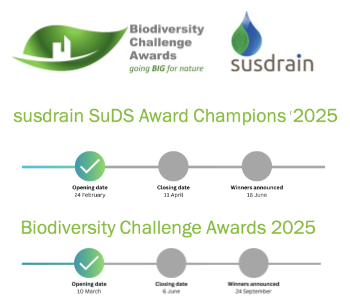


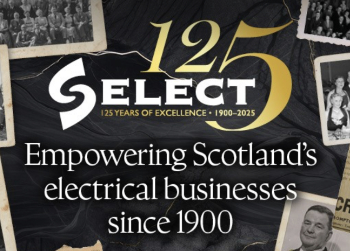

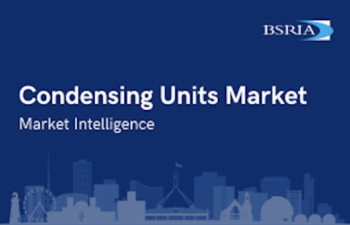


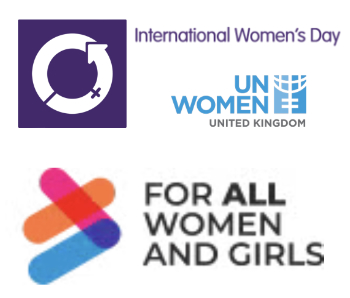





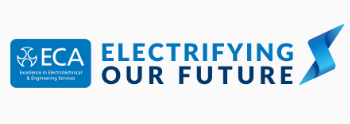

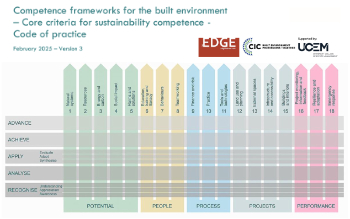

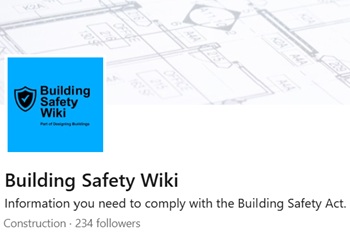
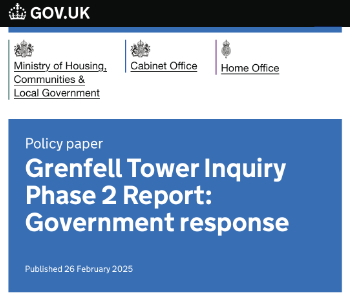
Comments
[edit] To make a comment about this article, or to suggest changes, click 'Add a comment' above. Separate your comments from any existing comments by inserting a horizontal line.